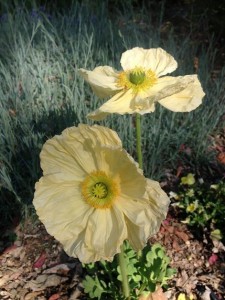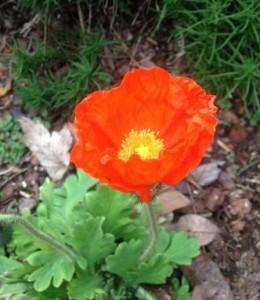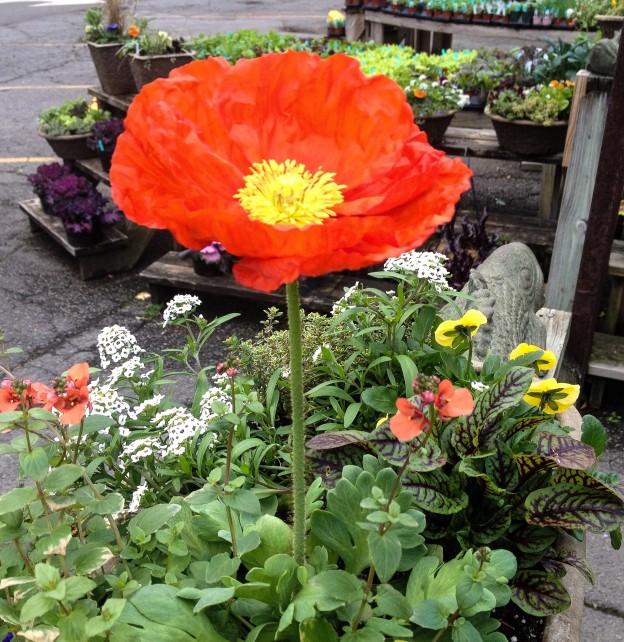I love poppies. Specifically, papaver nudicaule, or Iceland poppies, bright harbingers of spring in the Birmingham area.
 Best planted in the garden in a sunny spot that won’t stay too wet, they’ll grow through the winter getting bigger and bigger. The first fat bud uncurling signals spring isn’t far off, and once they begin to bloom they continue, until, finally, they fade in the true heat of late spring.
Best planted in the garden in a sunny spot that won’t stay too wet, they’ll grow through the winter getting bigger and bigger. The first fat bud uncurling signals spring isn’t far off, and once they begin to bloom they continue, until, finally, they fade in the true heat of late spring.
Most people are skeptical when I go on about poppies – until they try them. (I admit I’ve had to work hard to talk some of you into planting them, they look so scrawny and pitiful in their little cell packs or 4″ pots.)
Poppy Care:
Plant them in a sunny, well drained spot.
When you remove them from their pots, disturb the root ball as little as possible. I know, this is contrary to what you’ve always heard about planting. But, trust me on this, poppies don’t like their roots messed with.
Don’t plant too deeply. Water them in after planting, then allow them to dry out between watering. Do not overwater!
When they begin to bloom, deadhead, or cut off faded blooms. This will ensure the energy of the plant will go toward producing more bright flowers, not a poppy seed pod.
 Cut some to bring inside! Here are some tips for cutting your poppy blooms:
Cut some to bring inside! Here are some tips for cutting your poppy blooms:
– Wear gloves. Poppies secrete a liquid that can irritate the skin.
– Cut stems early in the morning when the most moisture is in the stem. The best stage to cut your poppy is when the bud is just beginning to stand up straight and is slightly colored.
– Cut the stem with a sharp pair of scissors so the stem doesn’t flatten or get squished.
– Sear the cut end of the stem with a match or dip it in boiling water to seal it. This will keep the moisture in the stem and help the flowers last as long as possible.
– Place your stems in cold water before moving them to their place of honor in your home or as a bright gift for a friend!
Poppies…one more in a long line of beautiful flowers for the spring garden. Don’t miss out this year – find a sunny spot and plant a few!
By Kris Blevons

